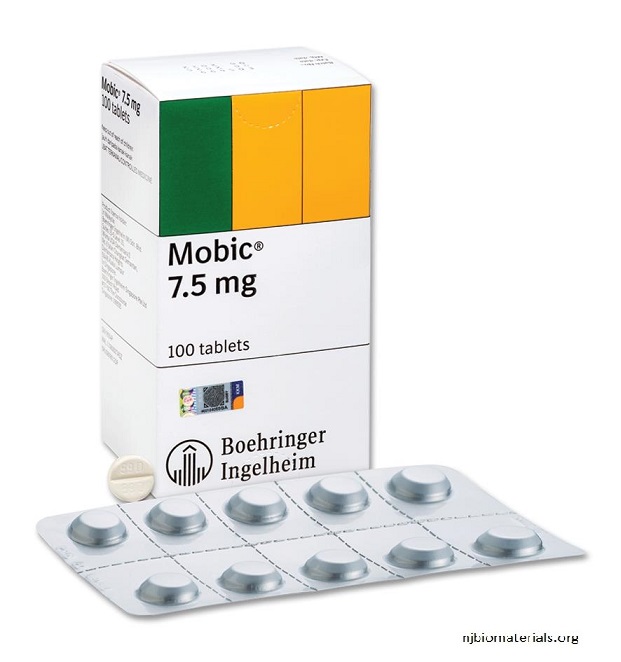Mobic (Meloxicam)
What is Mobic
A nonsteroidal anti-inflammatory drug (NSAID) that is commonly referred to as meloxicam, mobic is a medication that is used to treat pain and inflammation that are associated with conditions such as osteoarthritis, rheumatoid arthritis, and juvenile idiopathic arthritis.
Recommendations
● Follow the doctor's recommended dosage. Adults usually start at 7.5 mg once daily; depending on their response and condition, the starting dosage could be raised to 15 mg.
● Mobic Meloxicam should be used with food to reduce gastrointestinal discomfort. Don't crush or chew; swallow the tablet whole with a glass of water.
● To control symptoms, particularly in long-term treatment, use the lowest effective dose for the shortest required period of time.

Precautions and Contraindications
● Contraindicated in those known to be allergic to meloxicam or another NSAID, allergic reactions Mobic Meloxicam should not be taken by those who have a history of allergic-type reactions following aspirin or other NSAIDs.
● Meloxicam may raise the risk of bleeding or perforation in people with a history of gastrointestinal problems including inflammatory bowel disease or peptic ulcer disease.
● Use carefully in people with cardiovascular disease or risk factors; NSAIDs raise the risk of major cardiovascular events.
● Kidney and Liver Function: Contraindicated in severe renal impairment; track renal function routinely under treatment. Furthermore urged is caution should liver illness run in the family.
● Pregnancy and Breastfeeding: Avoid using meloxicam in the third trimester of pregnancy. Use it only in the first and second trimesters if absolutely necessary; meloxicam passes through breast milk.
Interactions
● Using anticoagulants (like warfarin) raises a risk of bleeding.
● Other NSAIDs: Because of their higher gastrointestinal side effect risk, other NSAIDs should not be taken with salicylates.
● Diuretics: May lower their efficacy and raise the renal toxicity risk.
● NSAIDs may reduce the antihypertensive action; hence, monitor blood pressure and renal function. ACE inhibitors and angiotensin receptor blockers (ARBs) may also be less effective.
● Lithium with Methotrexate: Monitor serum levels; concomitant usage may raise or lower the toxicity or levels of these medications.
Side Effects
● Typical side effects include constipation, headache, nausea, diarrhea, stomach ache, and vertigo.
● Gastrointestinal bleeding, peptic ulcers, renal malfunction, liver abnormalities, cardiovascular events (e.g., heart attack, stroke), allergic responses (rash, edema, trouble breathing).
● Reactions of the Skin: There have been documented rare major skin responses including Stevens-Johnson syndrome and toxic epidermal necrolysis; stop using at the first sign of a rash.
Before You Start Mobic Treatment
● Share a thorough medical history with your doctor including present medications, allergies, and past medical conditions.
● Physical Examination: To assess whether Mobic is appropriate for your ailment, you might need a physical examination.
● Particularly for long-term use, regular monitoring of kidney and liver function tests may be advised.
Overdose
● Overdose could show up as nausea, vomiting, stomach discomfort, gastrointestinal bleeding, and renal failure. Severe cases can cause cardiac events or coma.
● Action: Should an overdose be suspected, get emergency medical help right once. Management can include vital sign monitoring and supportive treatment.
Conclusion
The medication known as Mobic (meloxicam) is an effective treatment for managing pain and inflammation; however, in order to ensure its safety and effectiveness, it is necessary to take into account the patient's medical history, potential risks, and ongoing monitoring. Always seek the advice of a healthcare provider for individualized medical recommendations and recommendations regarding treatment options.